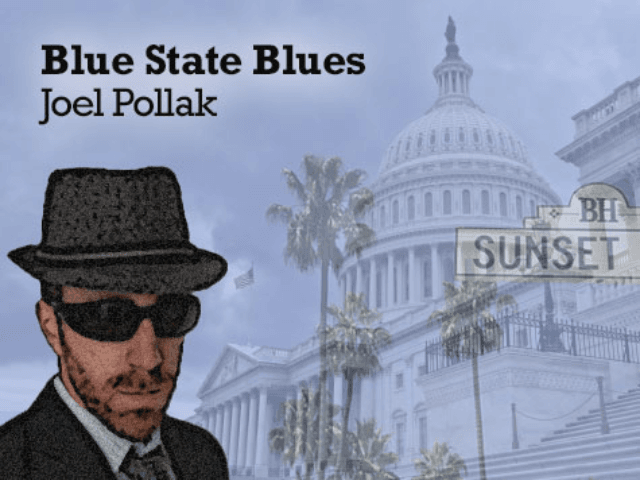Breitbart News executive chairman and former presidential strategist Stephen K. Bannon spoke last Friday to the California Republican Party convention in Anaheim and outlined his vision for “economic nationalism.”
Bannon’s views, and Trump’s, have been distorted by Republican establishment voices such as Peter Wehner, who warned in Sunday’s New York Times of the “Trump-Bannon brand of ethnonationalism” and their “white identity politics.”
But just two days before, Bannon had told the California GOP that the emphasis in “economic nationalism” was on citizenship, not identity:
Economic nationalism … it’s not about your race, your color, your gender, your religion, your ethnicity, your sexual preference. It’s about one thing: Are you a citizen of the United States of America? (Cheers)
He added: “As a citizen, also, you should have preference for jobs and economic opportunities.” For example, Bannon, restricting the H1-B visas that allow Silicon Valley to import foreign labor would allow Americans to meet the demand for those skills — particularly blacks and Hispanics, who are under-represented in the tech sector.
Bannon then elaborated on economic nationalism by criticizing some prevailing ideas in conservative policy circles:
This kind of Austrian school of economics, this kind of Ayn Rand — you know, where everything was about the economy. “What was most important six weeks before the election? Gotta see what the unemployment rate is. It’s GDP is everything.”
We are not an economy; we’re a country.
We have a social fabric and a civic responsibility. By the way, I’m a free market capitalist, as most of you are, right? That’s the underpinnings of our society. But we’re a civic society. It’s more than an economy. An economic nationalism, looking out for our fellow men…
“We’re not an economy; we’re a country.” That view echoes criticisms that liberals once made of globalization in the 1990s. Harvard professor Michael Sandel, for example, wrote in Democracy’s Discontent (1998) about a politics that lost its relevance by failing to address disruptive economic changes. Faith in national institutions had eroded, he said, and nothing replaced them — certainly not a global identity: “[T]he cosmopolitan ideal is flawed,” he wrote.
Sandel argued for a revival of what he called the republican — small “r” — tradition, which emphasized the bonds among Americans. He did not have faith in national identity — which he seemed to associate with fundamentalism and exclusion — and instead placed his hope in the restoration of local communities.
What Trump and Bannon understood in 2016 — and what the left missed for decades — was that national identity is still a powerful, inspiring force.
But Bannon and Sandel have much in common. His political model may have been that of Andrew Jackson — the outsider who freed the White House from the New England and Southern elites — but his economic nationalism is an echo of the republican ideal first articulated by Thomas Jefferson. He does not reject capitalism, or the global economy, but insists mutual obligations among American citizens must trump abstract notions of general welfare.
His attacks on the Austrian school, and Ayn Rand, raise red flags for some conservatives. Those ideas, after all, helped inspire a different kind of populist revolt in 2009-10, when the Tea Party emerged to protest massive federal government spending and intervention in the economy. The nationalist populism of 2016 clashes to some extent with the constitutionalist populism of 2010 — even though the voters, in each case, are often the same people.
How can these two populisms be reconciled? For the conservative base, that task is easy: the Tea Party in 2010 and the Trump movement in 2016 were each the closest weapons at hand against Washington.
But when it comes to governing, which is what primarily concerns Bannon, the contradictions cannot be erased by calls for party unity.
True, Ayn Rand and Friedrich A. Hayek may not have had much consolation to offer workers displaced by global competition. But the obstacle that economic nationalism will always face is that while it may create opportunities for workers, it raises prices for consumers (including those workers), whether directly through tariffs or indirectly through foreign retaliation.
Protectionism has a price tag — even if motivated by the noblest civic republican aims.
We might be willing to pay that price, just as we do for other policies that make social rather than economic sense, like a progressive tax system. But we cannot know how high that price will be. And it is possible that voters who chose Trump to create jobs in 2016 might choose someone else to lower the cost of living in 2020.
Regardless, these are ideas worth debating. Bannon’s “economic nationalism” is not “racist”; indeed, it shares much with the civic republicanism liberals once prescribed. There is ample common ground to build a more constructive national dialogue.
Joel B. Pollak is Senior Editor-at-Large at Breitbart News. He was named one of the “most influential” people in news media in 2016. He is the co-author of How Trump Won: The Inside Story of a Revolution, is available from Regnery. Follow him on Twitter at @joelpollak.

COMMENTS
Please let us know if you're having issues with commenting.